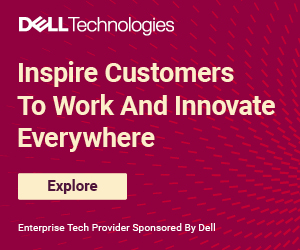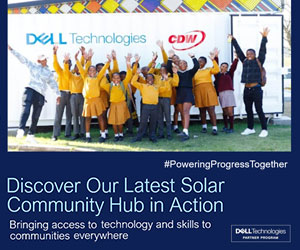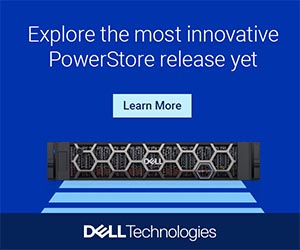Dell Technologies and their partners are connecting underserved communities to digital education, work, and healthcare by building Solar Community Hubs
Dell Technologies, together with their nonprofit partner Computer Aid International and like-minded contributors, are opening Solar Community Hubs across the globe. These hubs will focus on providing digital skills to further education, skill training to open economic opportunities and health services for the community.
What is a Solar Community Hub?
Solar Community Hubs are a solar powered internet center that connects community members to the digital world. It is essentially a connected community service center built using two refurbished shipping containers. The containers are transformed into well-lit, well-ventilated classrooms using a combination of solar power, energy-efficient Dell technology and air-cooled servers. Each hub has multiple user stations featuring workstation and network technology from Dell Technologies, supporting up to 40 people at a time, and offering up to 20 people a wireless connection to learning materials.
Between the two containers is an open-air space with a rooftop for added community connection. With the addition of the outside space and laptops, each hub features high-quality furnishings and a community space that can be used for training or as an Internet café.
These hubs enable micro and small enterprises to create jobs in the community and enable financial sustainability by offering services/products that go beyond education (e.g., jobs, telemedicine).
Their “community-first” approach imbues working with community leaders to select the appropriate services for each hub. Services will vary based on the local needs and each hub will be managed and owned by the community.
Some Background on Solar Hubs
Computer Aid International and Dell Technologies have collaborated on Solar Community Hubs since 2011. They opened the first lab in Lagos, Nigeria, in 2014 before launching a series of labs in South Africa. Since then, they’ve opened labs in Kenya, Morocco, Colombia, Brazil, and Mexico. The installation of the classroom provides access to technology for the first time, but beyond that, the installation of a Solar Community Hub provides services in addition to education, including an increased footprint for community support and networking, increased economic opportunities, access to water and electricity, healthcare, and biodiversity preservation.
With the help of their partner, Computer Aid, they’ve opened 25 labs in 6 countries. Solar Community Hubs are built in country, using the refurbished shipping containers. They use low consumption energy technology and solar panels as a unique source of energy. The hubs are carbon neutral once installed, as each hub produces more energy than they consume, which means their operation is run 100 percent by renewable energy.
In addition to being a sustainable solution run on renewable energy, Solar Community Hubs aims to help communities:
• Learn basic computer skills, graphic design, robotics, coding.
• Learn how to complete college/university applications and how to apply for scholarships.
• Learn essential life skills, entrepreneurship, resume building, job search skills, school subject choices and career guidance.
• Stay informed with community health initiatives.
• Access telemedicine and key health agencies, not available in all hubs.
• Stay connected to their culture, their community, and to each other.
• Students can even earn an accredited certification in some hubs.
Learn more about Solar Community Hubs by visiting here.

















